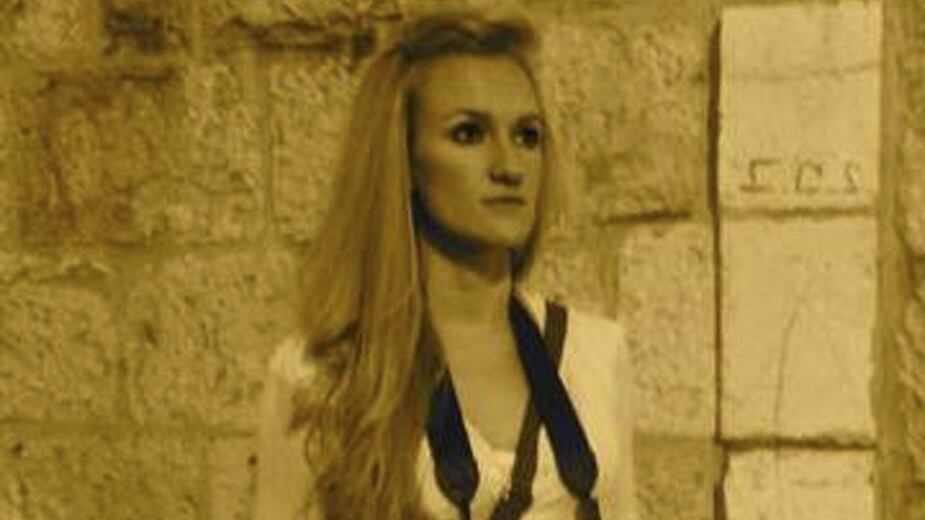Four journalists, including at least one American, were detained in Bahrain on Sunday, according to U.S. officials. The group had been in the country reporting on the fifth anniversary of a popular uprising there that was put down by security authorities.
A spokesperson for the family of one the journalists, Anna Therese Day, an award-winning reporter who has lived and worked throughout the Middle East, said that Day and her camera crew hadn’t been released and disputed allegations by Bahraini officials that one of the reporters was arrested while “wearing a mask and participating in attacks on police alongside rioters in Sitra,” an island off Bahrain’s eastern coast.
“The allegation that they were in any way involved in illegal behavior or anything other than journalistic activities is impossible,” the spokesperson said.
ADVERTISEMENT
Day, a 27-year-old freelancer from Boise, Idaho, has written for The Daily Beast, mainly about the war in Syria and militant groups fighting there. In 2013, Day interviewed four members of a then-little known jihadist upstart calling itself the Islamic State, which had yet to splinter from its parent organization, Al Qaeda.
Day and a camera crew were reportedly in the country to cover the anniversary of the 2011 uprising, which was part of Arab Spring protests that swept across North Africa and the Middle East. The nationalities of the other journalists couldn’t immediately be confirmed, but the Associated Press identified them all as U.S. citizens.
“We are aware of reports that U.S. citizens have been arrested. We have no comment due to privacy considerations,” a State Department official told The Daily Beast.
The spokesperson for Day’s family said that she and her team, who haven’t been identified, “are experienced journalists, having most recently worked on virtual reality documentary filmmaking in Egypt and Gaza, and we hope the Bahraini authorities will release them rapidly and without harm.”
The Bahrain uprising occurred in Pearl Roundabout, a large public area in the heart of the capital, Manama. But it wasn’t clear what Day and her colleagues were doing in Sitra.
The island city’s population is largely Shiite Muslim, and the Bahraini government is sensitive about journalists reporting on people who live there in relatively poorer conditions compared to others in the Sunni-dominated kingdom.
Bahraini officials alleged that the Americans had failed to identify themselves as journalists and had entered the country last week on tourist visas.
Bahrain officially requires journalists entering its country to obtain journalism visas, but often journalists are allowed to enter with tourist visas, which Americans can acquire at the airport. Journalism visas can take several weeks to obtain and may be denied during especially sensitive periods, such as this week’s anniversary, when officials are particularly sensitive about an attempted uprising against the king’s rule.
In the past, officials have allowed journalists to enter on a tourism visa and not made an issue of it until they make an arrest.
The 2011 uprising in Bahrain was violent and unsuccessful. Within a month of protesters camping out in Pearl Roundabout demanding reforms, the government requested additional military forces from Saudi Arabia and the United Arab Emirates, and the protests became violent. After three months, the king declared a state of emergency and eventually cleared the roundabout, destroying it and the pearl statue that stood at its center.
Since then, the government has been particularly aggressive against journalists, activists or human rights workers and other government critics, detaining scores of opponents. At the same time, the government has sought to present itself as an economically appealing Gulf State. Last year, for example, it hosted the 2015 Formula 1 Gulf Air Bahrain Grand Prix.
Day said in a recent interview with fellow journalist Gail Sheehy that she had been drawn to covering the Arab Spring in part to gain foreign reporting experience, but also because her young age made her more relatable to the men and women marching in the streets for democratic reform. She was in Egypt’s Tahrir Square at the height of its uprising and has since reported extensively inside Syria.
The majority of the population of the Middle East is under 30, Day told Sheehy. “I got to interview and interact with them in a very different way, because I was their peer.”






